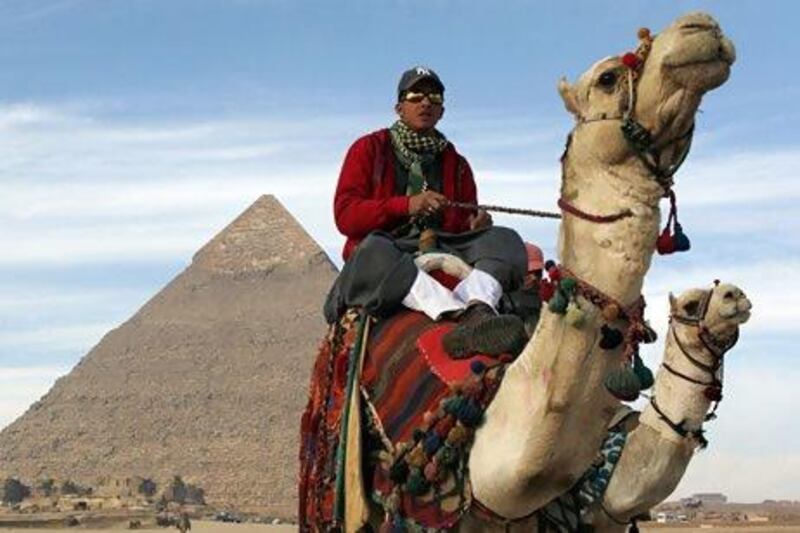Egyptian tourism is on the rise as the country marks its second anniversary of the revolution today.
Investor confidence in the sector, however, is poised on the country's parliamentary elections expected late next month, and a possible US$4.8 billion (Dh17.63bn) loan from the IMF.
In the first 11 months of last year, 10.5 million tourists visited the North African country, up 17 per cent against the same period in 2011.
In 2010, Egypt received 14.7 million tourists and generated 147.4 million tourist nights compared with 9.8 million tourists accounting for 114.2 million tourist nights in 2011. Despite the drop, at least one Egyptian hotel group plans expansion. Giza-based Jaz Hotels & Resorts plans two new hotels this year: one in Sharm El Sheikh with 194 rooms, and a 90-room facility in Mersa Matruh on the Mediterranean Sea.
Next year, it expects to open a hotel in Sharm El Sheikh with 300 rooms.
It owns and operates 42 properties in Egypt, and suffered a drop of 15 to 20 per cent last year versus 2010 in its occupancy rates.
"The tourism industry everywhere in the world is very vulnerable and the first to get affected by any unusual circumstances in any country," said Nancy Georggy, the corporate director of marketing for Jaz Hotels, Resorts & Cruises.
"However, 2010 was a phenomenal year in the history of the Egyptian tourism sector in general."
Despite the encouraging overall figures, the tourism revenues are yet to go back up to the levels before the revolution.
"The biggest challenge faced by Egypt currently is the political uncertainty and the related risk of violence," said Rashid Aboobacker, a senior consultant at TRI Hospitality Consulting.
"Although the situation on the ground has improved considerably on 2011, the ongoing power struggle is likely to keep the more wary tourists and more importantly investors on 'wait and watch' until the political and security risk is completely resolved."
Violence in neighbouring Syria and its spillover effect in Lebanon is also dampening tourist confidence.
Constraints such as lack of infrastructure, skilled labour in the hospitality sector, and lower average spending by tourists remains unchanged from before the uprising and bog down the sector, he said.
Politics was the dominant topic in the post-Hosni Mubarak years and that pushed investment issues out of focus, say some analysts.
"It is only very recently that we are beginning to sense discussions towards reactivating the promotion of investments," said Ayman Sami, the head of Egypt for Jones Lang LaSalle Mena.
UAE firms, for instance, are gradually going ahead with their tourism and retail projects in Egypt.
"This year has been a very good year for Egypt," said Iyad Malas, chief executive of MAF Holding, which operates malls in Egypt and holds the regional franchise rights for Carrefour.
"You cannot fully compare 2011 with 2012 - Cairo City Centre was closed for three months, Alexandria was closed for one month," he said. "But there has been a good recovery in retail sales and footfall in Egypt."
The projects show that tourism and retail are an attractive area for Arabian Gulf investors but "these sectors have been particularly affected by political unrest", said James Fallon, Middle East analyst for the consultancy Control Risks.
Yet Gulf capital has been a financial lifeline for Egypt's central bank as the IMF loan is yet to materialise, he said.
* with additional reporting by Gregor Stuart Hunter





